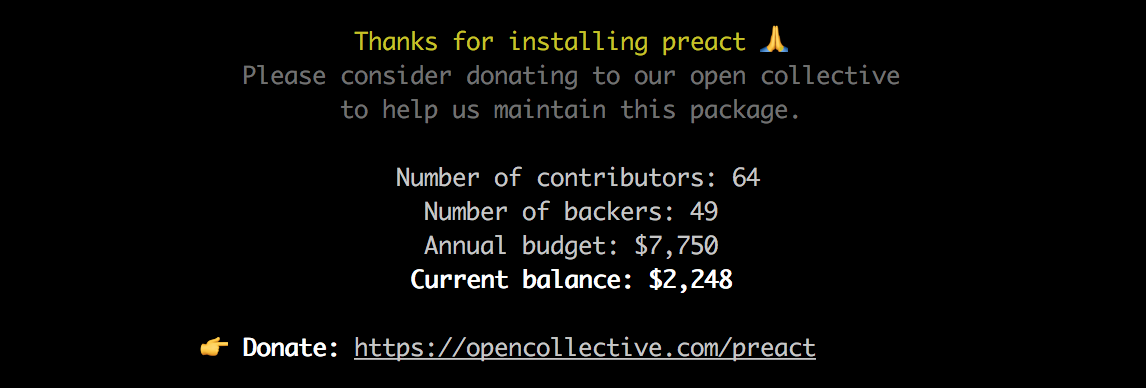opencollective
v1.0.3
Published
Official Command Line Interface for Open Collective
Downloads
332,952
Readme
opencollective-cli
Command Line Interface for Open Collective.
Install
$ npm install -g opencollectiveThis will populate a opencollective (and its shortcut oc) as a command line.
You can also add this as a dependency in your package.json to automatically show the postinstall donate message:
$ npm install --save opencollectiveThen run
$ opencollective setupCommands
$ opencollective [collective] [info|stats]Shows the latest stats of the collective (number of contributors, number of backers, annual budget and current balance).

$ opencollective [collective] donate [amount] [frequency]Opens the donate page of your collective. E.g. $ opencollective webpack donate 5 monthly
$ opencollective postinstall [--plain]Reads the details of your collective in the package.json of the current directory and invite the user to donate after installing your package.
Add this command in the postinstall script of your package.json.

If you add the --plain option, it won't show any emoji and ascii art (better for old terminals).
$ opencollective setupInteractive setup to add your collective info into your package.json and add the backers/sponsors badge and avatars in your README.md.
Coming soon
$ opencollective login
$ opencollective logout
$ opencollective cc | billing
$ opencollective cc ls
$ opencollective cc add
$ opencollective cc rm
$ opencollective apply [github_repo_url]
$ opencollective show <collective>
$ opencollective open <collective>
$ opencollective ls // list the collectives you are contributing to.Stop your contribution to . Warning: may make someone sad somewhere on this planet.
Credits
Shamelessly inspired by the excellent now-cli
